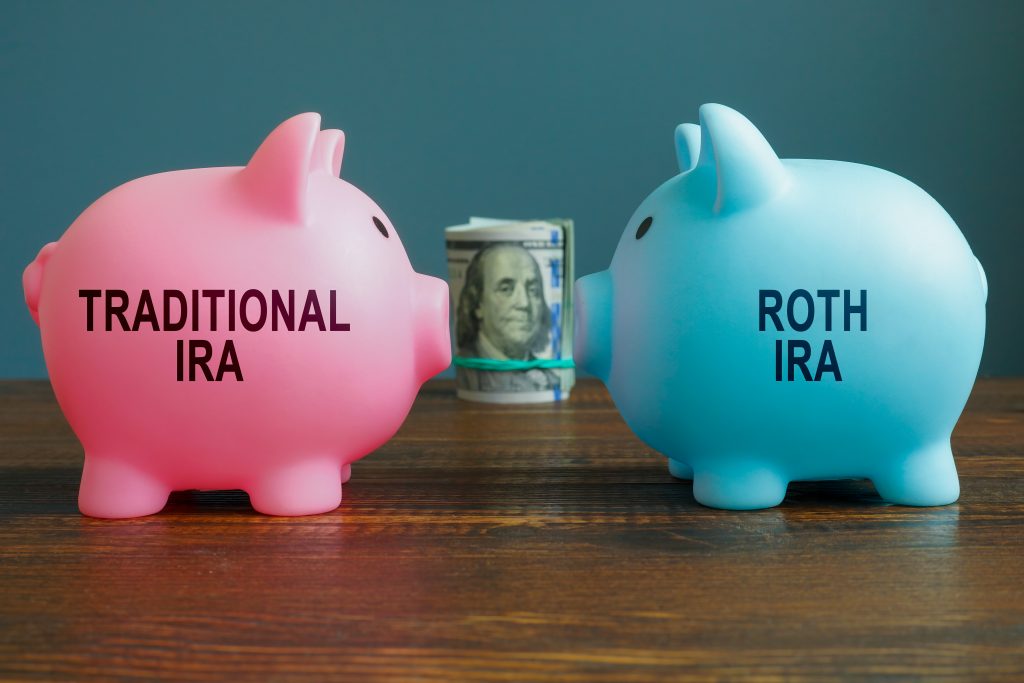When Ray Dalio speaks, people listen. At least, they probably should listen.
Dalio founded the super-successful hedge fund Bridgewater Associates. His net worth stands at roughly $14 billion. He has studied the financial markets for decades and even predicted the 2008 financial crisis, warning in 2007 about serious risks in the financial system.
Where to invest $1,000 right now? Our analyst team just revealed what they believe are the 10 best stocks to buy right now. Learn More »
Now, Dalio is sounding the alarm again. He said in a recent interview on NBC’s Meet the Press that he’s “worried about something worse than a recession.” Dalio fears that we may be on the verge of a breakdown in the world’s monetary order that would disrupt the global economy on a scale similar to that experienced in the 1930s.
What should retirees do if Dalio is right? Here are five essential safeguards to take during uncertain times.

Image source: Getty Images.
1. Build or increase your emergency fund
If you don’t already have an emergency fund, start building one as soon as possible. If you do already have one, you may need to increase how much you have saved.
Typically, financial advisors recommend having at least three to six months of expenses socked away in an emergency fund. However, if Dalio’s gloomy prediction comes to pass, a larger amount of savings could be warranted. Consider increasing your emergency fund to cover between one and three years of expenses if you can. Even if Dalio’s outlook is overly pessimistic, you’ll be better prepared to weather any extended period of market volatility.
2. Reduce your debt
Reducing your debt is a smart move, no matter what happens with the economy. Pay off high-interest debt, such as credit cards, first. If you have a mortgage with a relatively low fixed interest rate, you’ll want to look at your overall financial position and liquidity before paying it down. Generally speaking, though, the lower your total debt, the more financial flexibility you’ll have in an economic downturn.
3. Add more safe-haven assets to your investment portfolio
Hopefully, your investment portfolio is already well diversified. Even if that’s the case, you may want to consider adding more safe-haven assets to your investments.
For example, gold has historically been a refuge for investors during periods of financial instability. Treasury Inflation-Protected Securities (TIPS) could protect against rising inflation if the bleak scenario envisioned by Dalio comes about. As for stocks, focus on owning shares of high-quality companies that ideally have strong dividend track records and operate in essential sectors, such as consumer staples, healthcare, and utilities.
4. Modify your investment withdrawal strategy
For years, many financial planners have recommended that retirees follow the “4% rule.” Under this rule, retirees withdraw 4% of their total savings each year, adjusting for inflation. However, if a 1930s-like economic disruption were to occur, you should seriously evaluate modifying your investment withdrawal strategy.
Talk with your financial planner about potentially adopting a more conservative withdrawal schedule. One alternative is to go with a dynamic strategy, where the amount you withdraw changes based on market conditions. Another option is to reduce your annual withdrawals to a lower level (perhaps 2% or 3%) to try to make your retirement savings last longer.
5. Review your insurance coverage
Review all your insurance policies to ensure you have adequate coverage. Most importantly, take a look at your health insurance. You may need to revise your Medigap or Medicare Advantage plan to make sure you don’t face the risk of paying a significant amount out of pocket for healthcare expenses. Also, check to see whether you can reduce your auto and home insurance premiums without increasing your financial exposure too much.
What if Dalio’s prediction doesn’t come true?
To be clear, Dalio doesn’t think a 1930s-like financial crisis is definitely coming. However, he believes we’re at a pivotal point where things could go either way, depending on how economic matters, such as the U.S. debt and tariffs, are handled.
What if Dalio’s dire prediction doesn’t come true? Several of the five safeguards identified above are still good ones for retirees to consider. It’s never a bad idea to build a robust emergency fund, reduce debt, and ensure you have adequate, cost-effective insurance. Having a portion of your retirement portfolio in safe-haven assets is pragmatic, too.
The $22,924 Social Security bonus most retirees completely overlook
If you’re like most Americans, you’re a few years (or more) behind on your retirement savings. But a handful of little-known “Social Security secrets” could help ensure a boost in your retirement income.
One easy trick could pay you as much as $22,924 more… each year! Once you learn how to maximize your Social Security benefits, we think you could retire confidently with the peace of mind we’re all after. Join Stock Advisor to learn more about these strategies.
View the “Social Security secrets” »
The Motley Fool has a disclosure policy.
 benzinga.com
benzinga.com fool.com
fool.com



